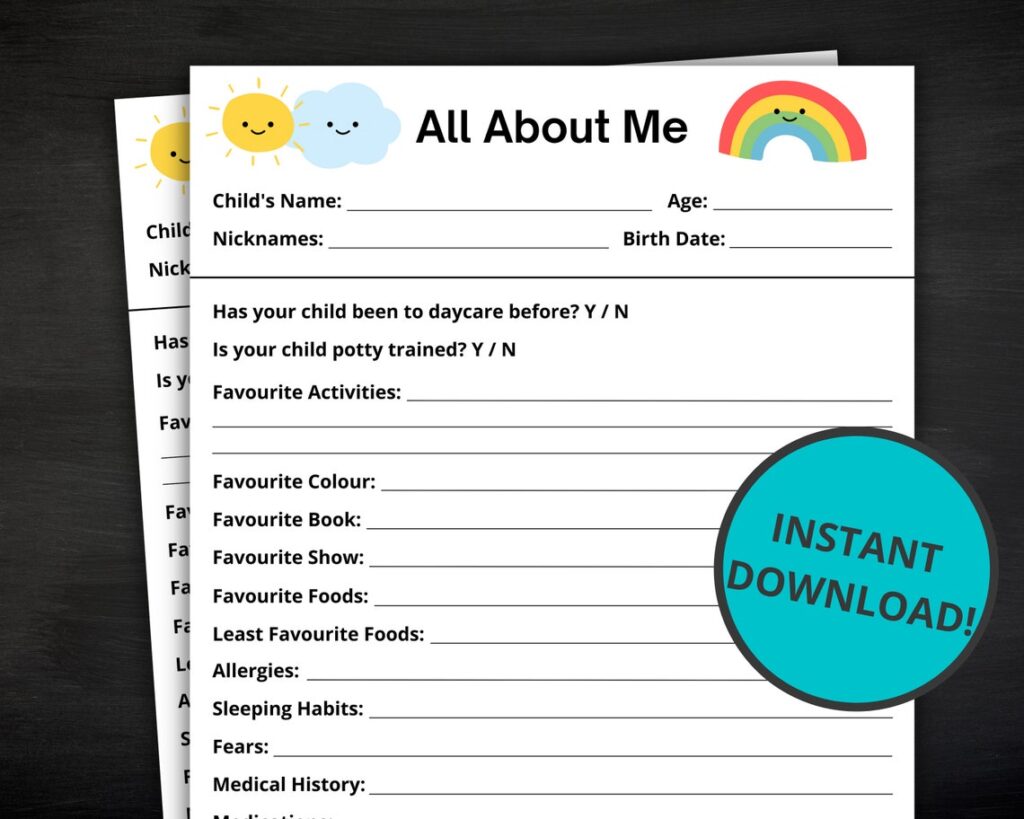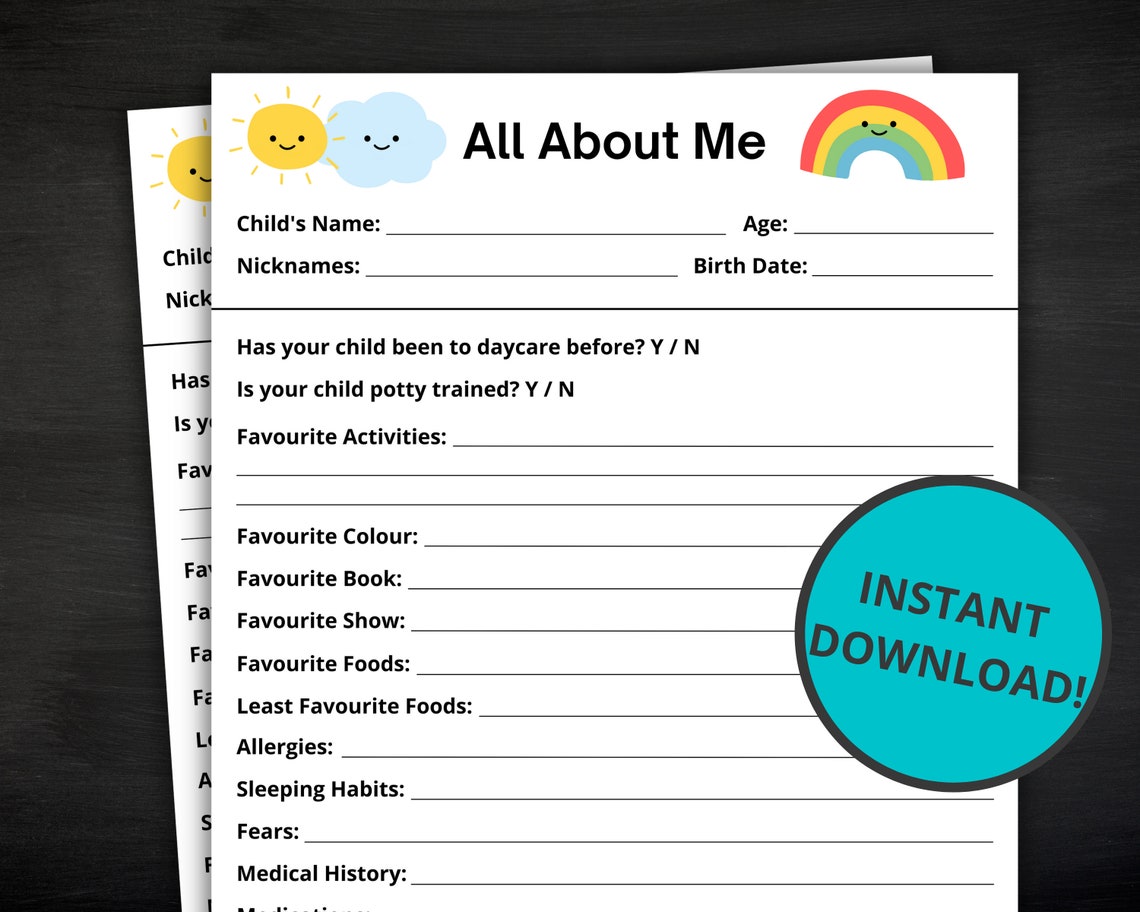
Unlock Meaningful Conversations: Engaging Questions to Get to Know Kids
Building strong relationships with children requires more than just superficial interactions. It demands genuine curiosity and a willingness to delve into their thoughts, feelings, and experiences. One of the most effective ways to foster these connections is through asking thoughtful and engaging questions to get to know kids. These questions to get to know kids can open doors to deeper understanding, creating a space where children feel valued and heard. Whether you’re a parent, teacher, coach, or mentor, utilizing strategic questions to get to know kids is an invaluable tool.
Why Asking the Right Questions Matters
In our increasingly fast-paced world, it’s easy to get caught up in the daily grind and overlook the importance of truly connecting with the children in our lives. Asking intentional questions to get to know kids offers numerous benefits:
- Strengthens Relationships: Showing genuine interest in a child’s life helps build trust and strengthens the bond between you.
- Encourages Self-Reflection: Thought-provoking questions to get to know kids prompt children to think critically about their experiences and develop a better understanding of themselves.
- Improves Communication Skills: Engaging in meaningful conversations helps children articulate their thoughts and feelings, improving their communication skills.
- Provides Insights: By listening attentively to their responses, you gain valuable insights into their perspectives, challenges, and aspirations.
- Fosters Emotional Intelligence: Exploring their emotions through carefully crafted questions to get to know kids helps them develop emotional intelligence and empathy.
Categories of Questions to Get to Know Kids
To facilitate meaningful conversations, consider categorizing your questions to get to know kids into different themes. This approach allows you to explore various aspects of their lives and personalities. Here are some examples:
About Their Day
These questions to get to know kids help you understand their daily experiences and challenges:
- What was the best part of your day today?
- What was the most challenging part of your day?
- What did you learn today that you found interesting?
- Who did you play with today? What did you do?
- Did anything make you laugh today?
About Their Feelings
These questions to get to know kids help them explore and express their emotions:
- How are you feeling today? Why?
- What makes you happy?
- What makes you sad?
- What makes you angry?
- What are you worried about?
- What helps you feel better when you’re upset?
About Their Interests and Hobbies
These questions to get to know kids reveal their passions and hobbies:
- What are you most passionate about?
- What’s your favorite thing to do in your free time?
- If you could learn any new skill, what would it be?
- What’s your favorite book, movie, or song? Why?
- If you could have any superpower, what would it be?
About Their Dreams and Aspirations
These questions to get to know kids help them explore their future goals and dreams:
- What do you want to be when you grow up?
- What are you most proud of accomplishing?
- What’s one thing you want to achieve in the next year?
- If you could change one thing about the world, what would it be?
- What are you most excited about for the future?
About Their Relationships
These questions to get to know kids help you understand their relationships with family and friends:
- Who is your best friend? What do you like most about them?
- What’s your favorite thing to do with your family?
- Who do you look up to the most? Why?
- How do you show your friends that you care about them?
- What’s something you appreciate about each member of your family?
Deeper, More Thought-Provoking Questions
For older children or those who are more introspective, consider these deeper questions to get to know kids:
- What are you most grateful for in your life?
- What’s one thing you’re working on improving about yourself?
- What’s a mistake you’ve learned from?
- What do you think is the most important thing in life?
- If you could give one piece of advice to your younger self, what would it be?
- What does success mean to you?
Tips for Asking Questions Effectively
Asking the right questions to get to know kids is only half the battle. It’s equally important to create a safe and supportive environment where they feel comfortable sharing their thoughts and feelings. Here are some tips for asking questions to get to know kids effectively:
- Choose the Right Time and Place: Find a quiet and comfortable setting where you can have an uninterrupted conversation. Avoid distractions and ensure they have your full attention.
- Be Present and Engaged: Put away your phone, make eye contact, and actively listen to their responses. Show genuine interest in what they have to say.
- Ask Open-Ended Questions: Avoid yes/no questions that limit their responses. Instead, ask open-ended questions to get to know kids that encourage them to elaborate and share their thoughts.
- Listen Attentively: Pay close attention to their words, tone of voice, and body language. Try to understand their perspective and empathize with their feelings.
- Avoid Judgment: Create a safe space where they feel comfortable sharing their thoughts without fear of judgment or criticism.
- Follow Up: Show that you’re listening by following up on previous conversations. Ask about things they’ve mentioned in the past and show that you remember their interests and concerns.
- Share Your Own Experiences: While the focus should be on the child, sharing your own relevant experiences can help build rapport and create a sense of connection.
- Be Patient: Some children may be hesitant to open up at first. Be patient and persistent, and don’t pressure them to share more than they’re comfortable with.
Turning Questions into Meaningful Conversations
The goal isn’t just to ask questions to get to know kids, but to use them as a springboard for meaningful conversations. Here’s how to transform a simple question into a deeper connection:
- Expand on Their Answers: If they mention something interesting, ask follow-up questions to get to know kids to learn more. For example, if they say they enjoyed playing with a friend, ask what they did together and what made it fun.
- Relate to Their Experiences: Share your own experiences that are relevant to their answers. This can help them feel understood and create a sense of connection.
- Offer Support and Encouragement: If they’re struggling with something, offer your support and encouragement. Let them know that you’re there for them and that you believe in them.
- Validate Their Feelings: Acknowledge and validate their feelings, even if you don’t fully understand them. Let them know that it’s okay to feel the way they do.
- Look for Opportunities to Teach: Use the conversation as an opportunity to teach valuable life lessons. Share your wisdom and insights, but avoid being preachy or condescending.
Examples of Conversation Starters
Sometimes, getting the conversation started can be the hardest part. Here are some examples of conversation starters that can help you initiate meaningful discussions:
- “I was thinking about our conversation from last week about… and I wanted to see how you’re feeling about it now.”
- “I noticed you seemed a little down today. Is everything okay?”
- “I’m really interested in learning more about your passion for [their hobby]. Can you tell me more about it?”
- “I’m curious about what you think about [a current event or topic]. What are your thoughts?”
- “I was reading about [a topic related to their interests] and it made me think of you. Have you heard about it?”
Conclusion: Fostering Connection Through Thoughtful Inquiry
Asking the right questions to get to know kids is a powerful way to build strong relationships, foster emotional intelligence, and gain valuable insights into their lives. By creating a safe and supportive environment, listening attentively, and engaging in meaningful conversations, you can help children feel valued, understood, and connected. Remember that the goal isn’t just to ask questions to get to know kids, but to use them as a springboard for deeper understanding and connection. So, take the time to ask thoughtful questions to get to know kids, listen to their responses, and build stronger relationships with the children in your life. These questions to get to know kids will help create lasting bonds and memories.
By using these questions to get to know kids, you are investing in their future and fostering a lifelong connection. Keep exploring new questions to get to know kids and watch your relationships flourish. Remember, the key is genuine interest and a willingness to listen.
[See also: Building Strong Parent-Child Relationships]
[See also: Effective Communication Strategies for Parents]
[See also: Raising Emotionally Intelligent Children]

